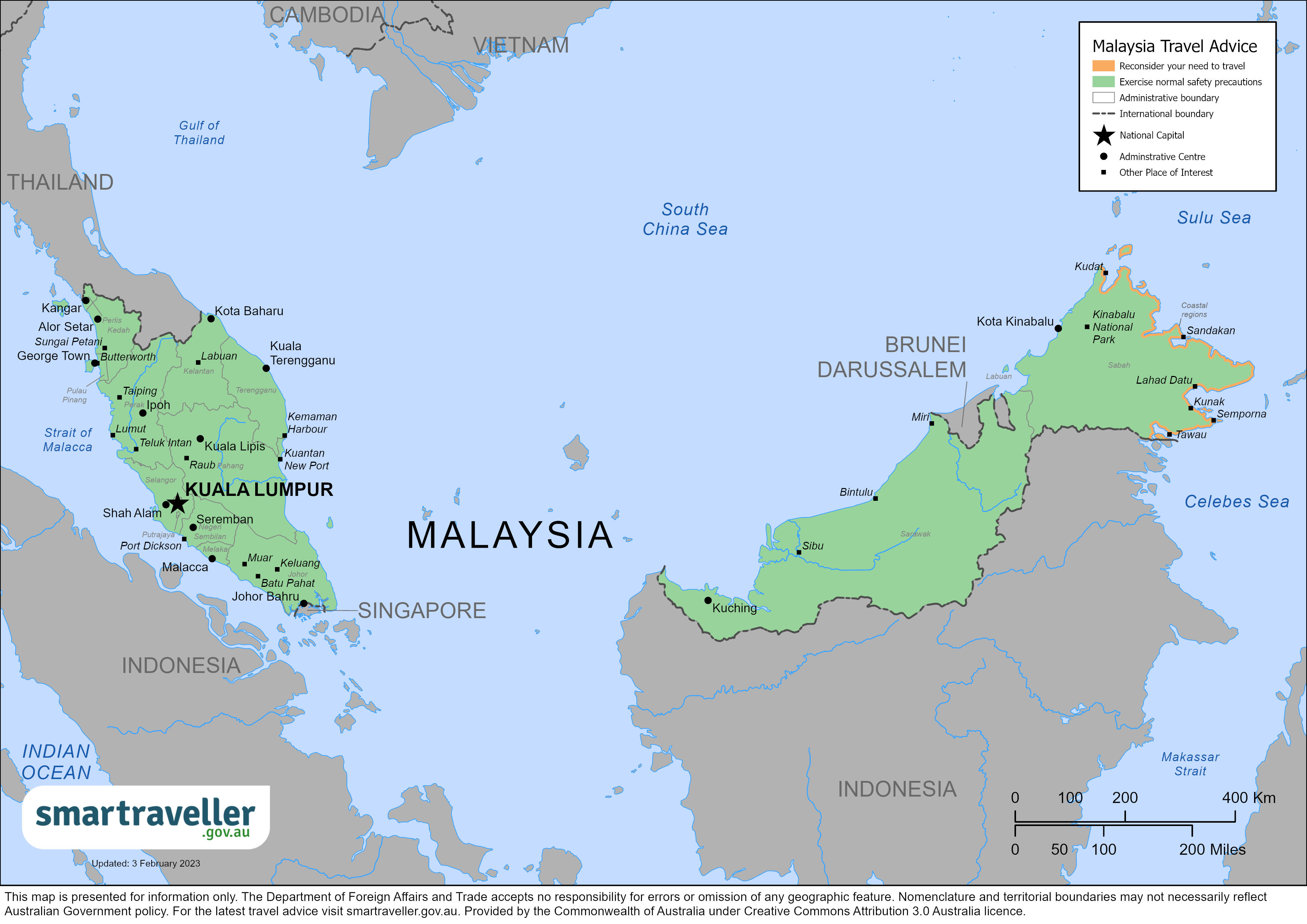Petty crime
Petty crime is common.
Opportunistic pickpocketing and snatch-and-grab robberies happen often where thieves snatch handbags, shoulder bags, jewellery, mobile phones and other valuables from pedestrians.
Hotspots include busy pedestrian crossings near major shopping malls, including within the KLCC area.
Motorcyclists, and sometimes thieves in other moving vehicles, pull bags from victims. This often causes injuries.
Smash-and-grab attacks against slow-moving and parked vehicles also happen.
To avoid petty crime:
- don’t carry bags that are easy to snatch
- walk on footpaths when you can and stay away from the curb
- hold your bag on the opposite side to the traffic
- when driving or parking your car, keep valuables out of sight
- always keep vehicle windows up and doors locked, even when moving
Handbags, expensive watches, jewellery, mobile phones and cameras are tempting targets for thieves.
Many travellers have lost passports and other valuables to thieves on trains and at airports.
Carry only what you need and leave other valuables, in a secure location.
Thieves sometimes work in groups at busy shopping centres. One or more may approach you with stories of distress or warnings for your safety. When you’re distracted, others steal your belongings.
Watch your personal belongings, especially:
- in crowded areas and during holiday periods
- when travelling on trains from the airport
- at airports
Be wary of approaches from strangers, especially in shopping centres.
Credit card fraud
Credit card fraud is common.
Credit cards are often copied for illegal use. This can happen anywhere, from small shops to large department stores and hotels.
Always keep your credit card in sight.
Online scams
Online scams have increased in recent years. Scammers often pretend to be people in need of financial help.
They prey on people looking for companions on online dating websites.
To protect yourself from being scammed:
- be wary of people asking for money
- don’t send money or provide your bank details to anyone you don’t know
- be careful when sharing personal information with people you haven’t met in person
Scams involving gambling are also common.
Violent crime
You could experience violent crime in Malaysia. Australians have been victims of violent crime in Kuala Lumpur, Penang and other areas of the country. You should exercise vigilance and take sensible precautions. If you’re a victim of crime, inform the local police and get a police report.
Incidents of assault, sexual assault, robbery and drink spiking, including in tourist areas of Kuala Lumpur and Penang have occured. Don’t leave your food or drinks unattended. Never accept food, drinks, cigarettes or gum from strangers. Stay with people you trust at parties, bars, nightclubs and taxis.
To stay safe while using taxis:
- don’t hail taxis on the street, especially after dark
- book taxis by phone at a shopping centre taxi desk
- check there’s a licence with photo on the dashboard or seat back before getting into a taxi
- check the driver matches the photo.
If you’re alone in a taxi, sit in the back seat. Keep your belongings with you in the taxi.
If your taxi stops to pick up other passengers, get out of the taxi when it’s safe to do so. Taxi drivers aren’t allowed to pick up extra passengers, but it sometimes happens.
E-hailing services are available. Use the same precautions as taxis.
Cyber security
You may be at risk of cyber-based threats during overseas travel to any country. Digital identity theft is a growing concern. Your devices and personal data can be compromised, especially if you’re connecting to Wi-Fi, using or connecting to shared or public computers, or to Bluetooth.
Social media can also be risky in destinations where there are social or political tensions, or laws that may seem unreasonable by Australian standards. Travellers have been arrested for things they have said on social media. Don’t comment on local or political events on your social media.
More information:

